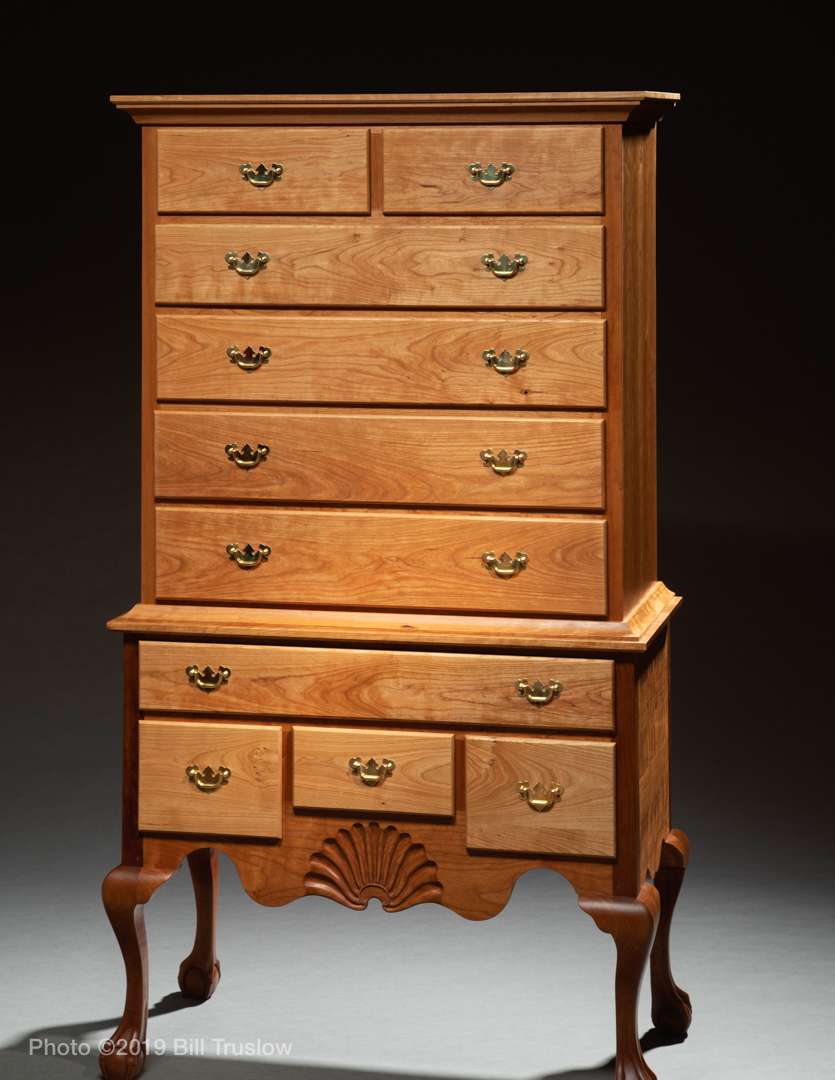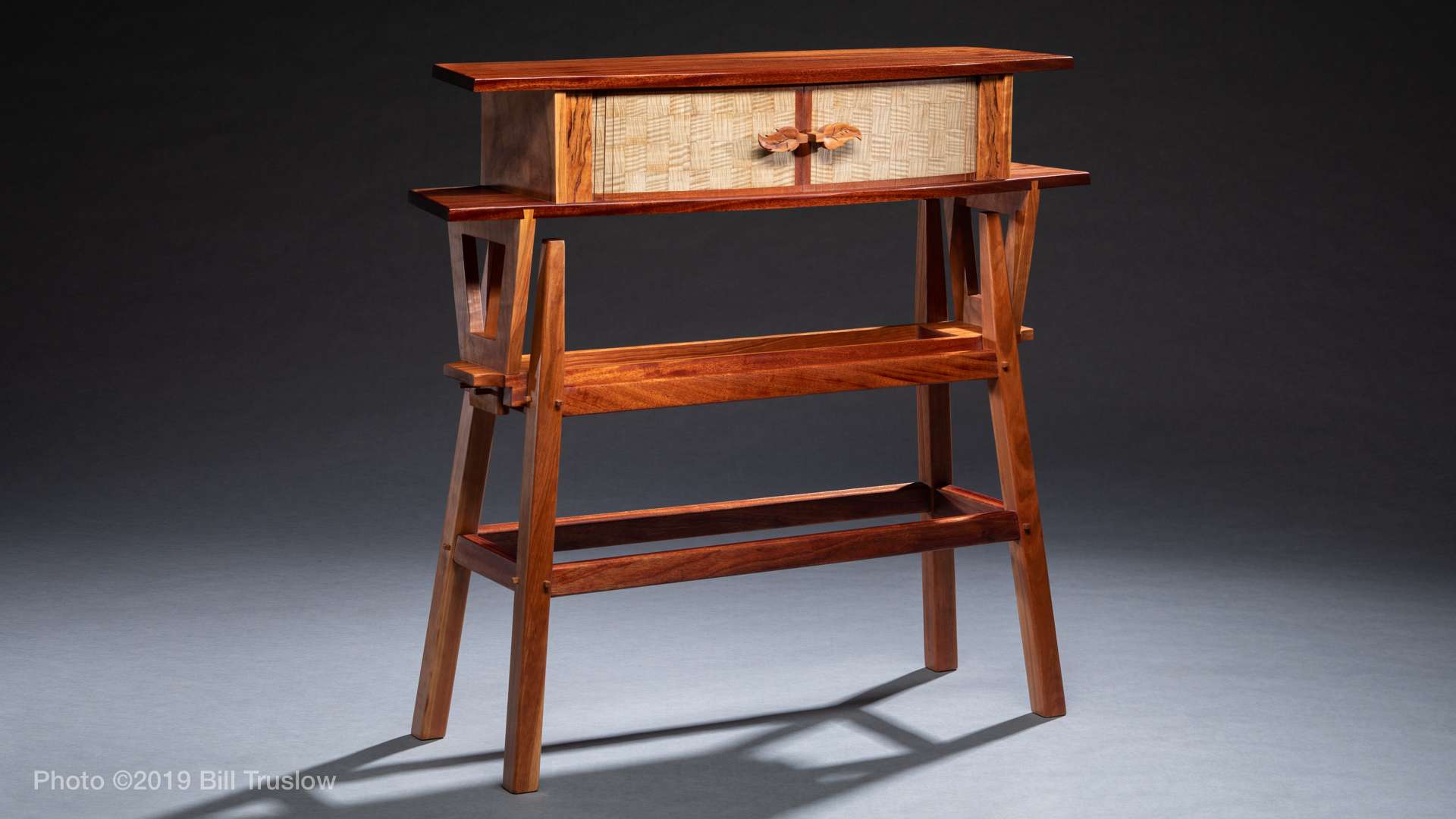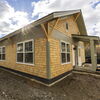
Maine prison inmates learn fine woodworking skills, forge marketing niche
An outreach program is giving a small group of inmates at the Maine State Prison, in Warren, a chance to learn fine furniture making skills and to create a unique market beyond the prison walls.
The Fine Woodworking Program at the prison is a venture of the American Furniture Masters Institute, operating under the authority of the Maine Department of Corrections.
The program was one of 16 Maine organizations recently awarded a total of $134,259 in grants from the Belvedere Traditional Handcrafts Fund of the Maine Community Foundation, according to a news release.
The $9,000 grant awarded to American Furniture Masters Institute doubles the program’s budget, allowing the institute to expand hours. The regular budget of approximately $9,000 is supported by donations, Mary McLaughlin, American Furniture Masters Institute board chair, told Mainebiz.
“We are so proud of this program,” McLaughlin said.
Founded by Brian Reid, a master fine furniture maker in midcoast Maine, the program is modeled on a similar one run by the institute in New Hampshire.
In 2011, Reid began the process of voluntarily organizing a community outreach program to teach fine furniture making in the Maine State Prison Industries Program, according to his website.

The program began in 2012. Participants are led through a curriculum that begins with lessons in hand cut joinery, including the dovetail and mortice and tenon joints. After showing competency in the use of hand tools, students can move on to training in power tools, drafting and designing. Participants also learn the characteristics of various types of wood.
More than $40,000 of prisoner furniture has been sold since the inception of the program. One-third of the money received for furniture sales goes to the inmates, one-third is reimbursed to the institute and one-third is returned to the Maine State Prison Industries Program for materials and supplies.
The institute applied to the Maine Community Foundation for the Belvedere grant to be able to expand instruction time and online marketing, said McLaughlin.
“We found that, whenever anyone hears about what we’re doing, they love to support it,” she said. “But we’re just not that well known yet in Maine. So we’re making efforts to get better known.”
Howard Hatch, a long-time Portland professional furniture maker and designer and a broker with F.O. Bailey Real Estate in Falmouth, now runs the program. He was one of Reid’s first recruits.
“Originally, there was an instructor there every Sunday,” he said.

When a primary private sponsor of the program backed out, the program scaled back to twice a month. Now it’s two to three days.
“With this grant, we have the financial capacity, at least temporarily, to potentially teach four Sundays per month,” he said.
Master woodworking skills
Led by Reid, Hatch and Jeffrey Cooper, the program takes place within the prison’s large woodshop. With the support of the prison administration, the Fine Woodworking Program accepts up to 12 inmates who show exceptional attitude and aptitude in the woodshop, according to the American Furniture Masters Institute. In addition to woodworking expertise, the program offers inmates benefits such as an outlet for creativity, the development of interpersonal and disciplinary skills, and the encouragement of self-respect, all of which may be helpful in finding employment after release from prison.
The ultimate goal is to reduce recidivism and help inmates move on to viable post-incarceration career paths. To date, none of the inmates who have participated in AFMI’s Prison Outreach Programs and been released have ended up back in prison.
The handcrafted products are sold through Maine Craft Association’s two stores: Maine Craft Portland and the Center for Maine Craft in West Gardiner; and through the Maine State Prison Showroom in Thomaston.
Hatch and McLaughlin also showed eight items last Saturday at Maine Craft Association’s Portland Fine Craft Show, where three $300 side tables sold and potential orders were taken for another $3,000 worth of furniture.
Traditional handcrafts
Other Belvedere Traditional Handcrafts Fund grantees included:
• Cultural Resources Inc., to create the Wabanaki Arts Mentorship Program, an intergenerational teaching program of traditional basketmaking and cultural knowledge;
• Penobscot Boys and Girls Club, to create a traditional handcrafts artist-based project utilizing tribal expertise to teach Maliseet youth cultural preservation;
• University of Maine, Hudson Museum, to increase public knowledge of Maine Indian traditional handcrafts and create four masterworks for enhanced access to exhibit-quality pieces in Maine; and
• Watershed Center for Ceramic Arts, to purchase startup materials and equipment for a new ceramic arts gallery located at the Watershed Center for Ceramic Arts in Midcoast Maine.
The Belvedere Traditional Handcrafts Fund supports projects and organizations that promote traditional handcrafts throughout the state. An anonymous donor established the fund in 2007.










1 Comments